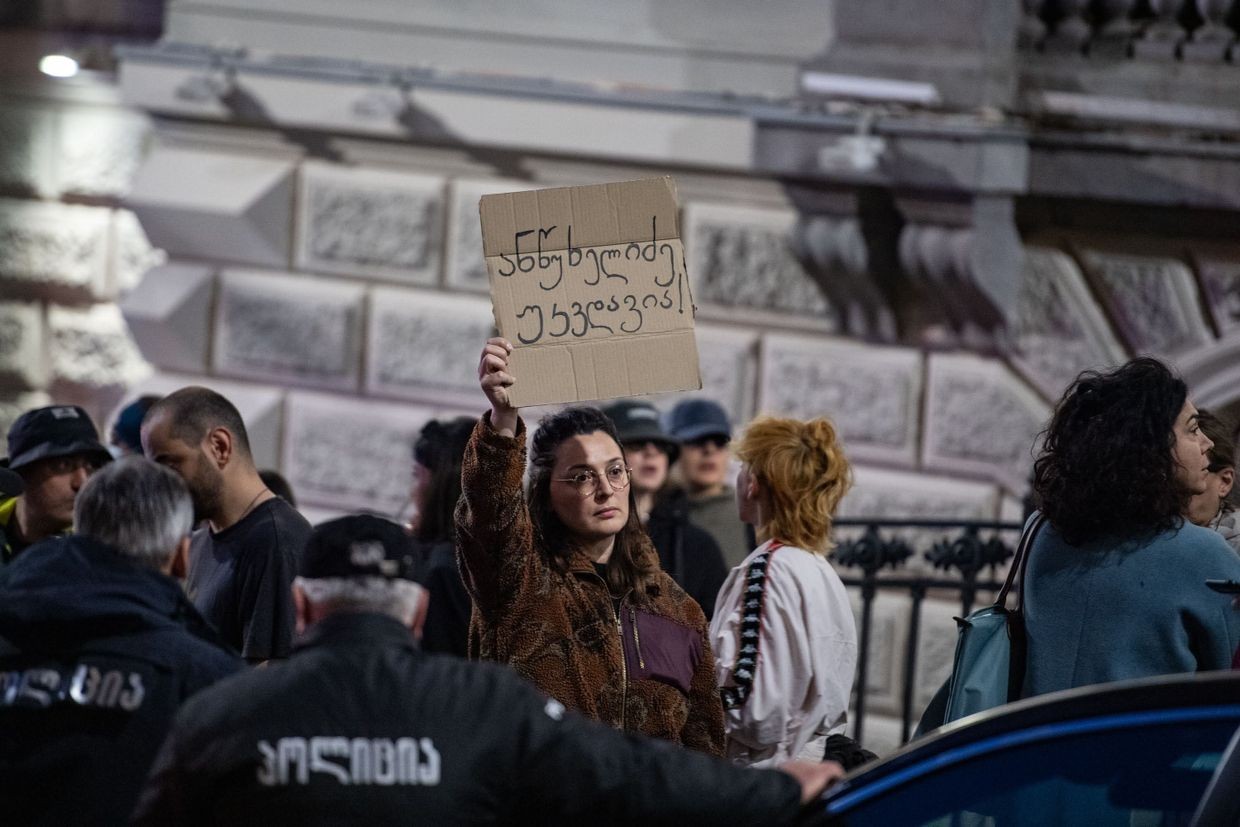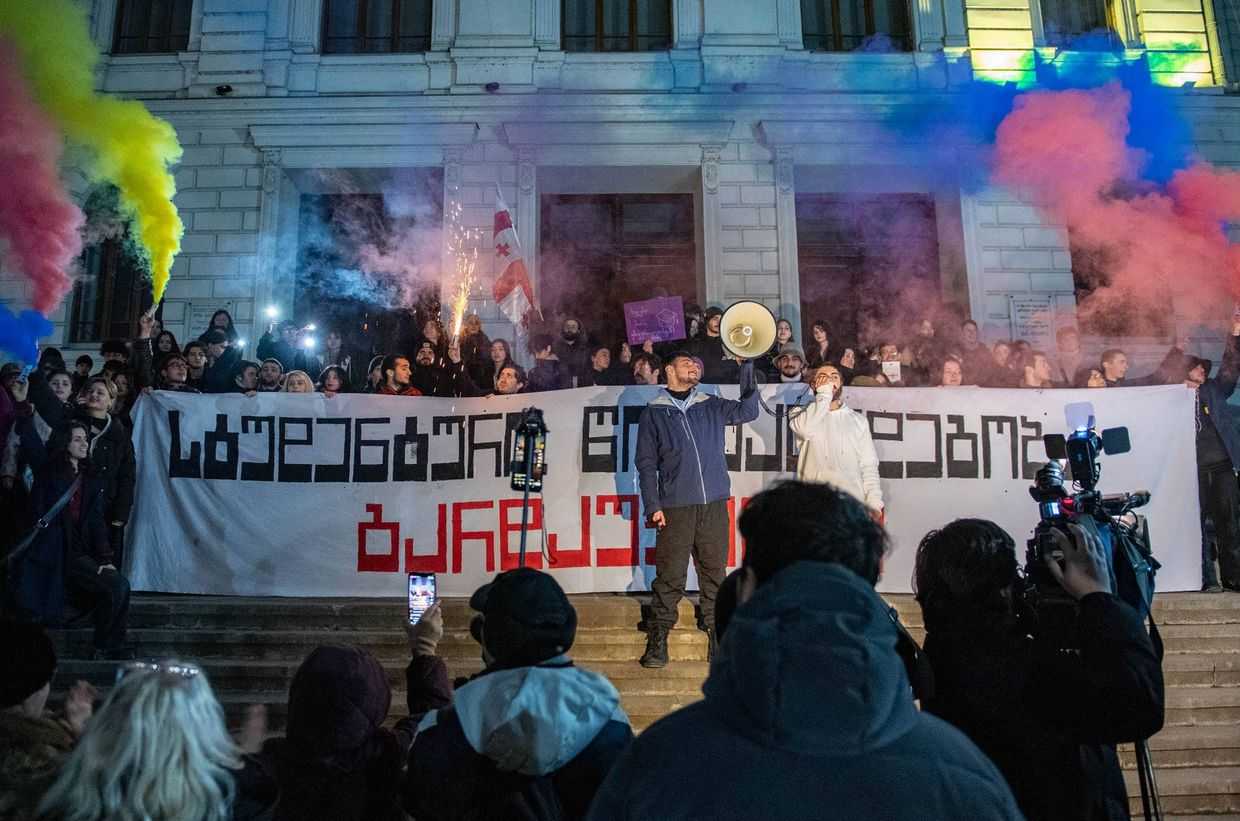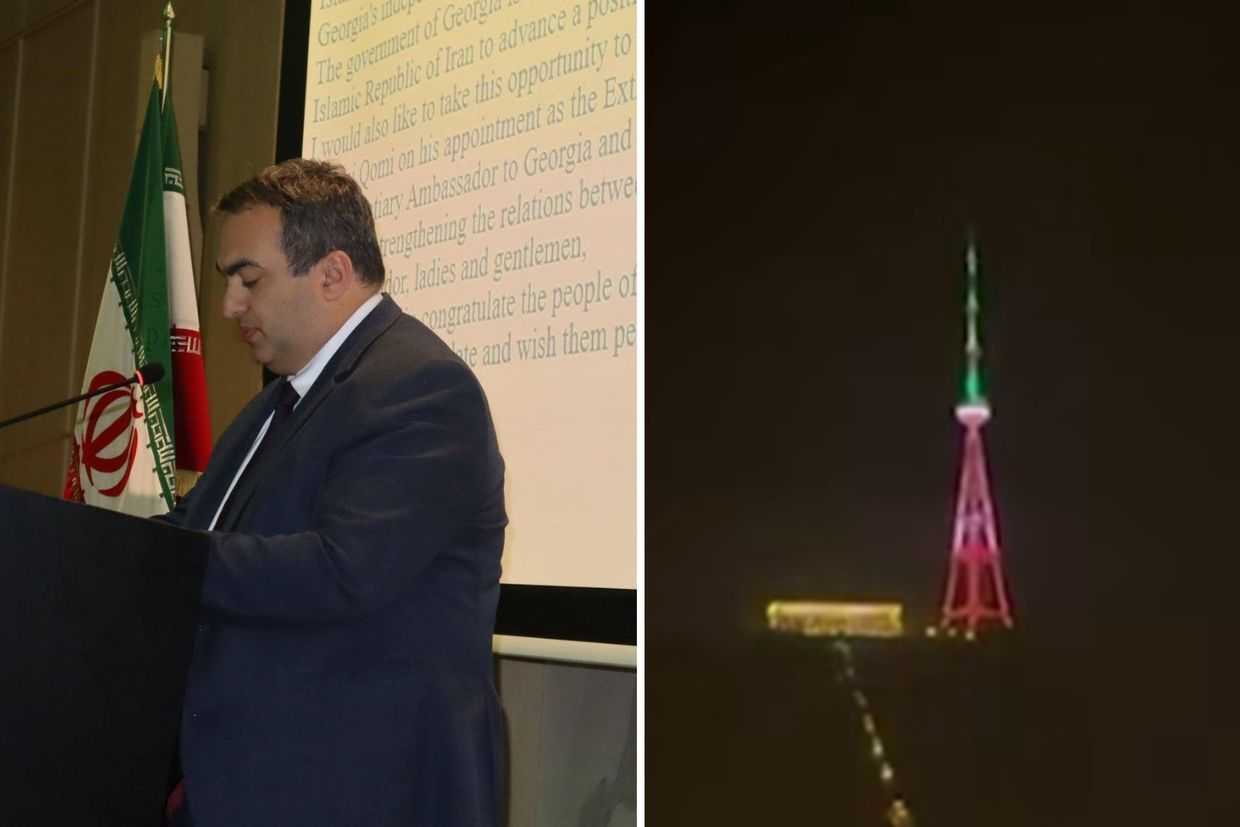
The work of the ruling Georgian Dream party’s parliamentary commission, which is partly focused on accusing the ex-ruling United National Movement (UNM) party of provoking and starting the August 2008 War, has sparked discontent among critics. Those who have criticised the commission’s work include family members of the deceased soldiers, as well as both current and former military personnel.
The commission was established in February, following repeated pledges by Georgian Dream to punish the ex-ruling party.
On 28 March, two military officials — then-Chief of the General Staff, General Zaza Gogava, and then-Head of the Peacekeeping Operations Headquarters, General Mamuka Kurashvili — were questioned about the August 2008 War, drawing public attention to the commission.
In particular, criticism was issued based on the questions posed to them by the commission’s chair, long-time MP Tea Tsulukiani, and the manner in which she conducted the questioning.
In one instance, a confrontation occurred between Tsulukiani and Kurashvili while she was questioning him about the then-government’s efforts to protect the civilian population.
‘We tried until the very last moment to avoid the conflict. What do you want, after all?!’ Kurashvili asked Tsulukiani, prompting a harsh response from her.
‘I’ve let a lot of things slide, so now let’s all “wise up” together, and I don’t want to see you raising your tone again! If you came here in uniform, show respect for the uniform first and foremost, is that clear?!’ Tsulukiani told him.
‘Don’t think that […] anyone here is any less of a man than you!’ she added.
That same day, a spontaneous protest began outside parliament, with the message: ‘Generals of the August War are being prosecuted for fighting against Russia’.
The posters brought by demonstrators read ‘Traitors cannot prosecute heroes’ and ‘A country that has fought will not apologise’. Another common poster read ‘Antsukhelidze is immortal’, a reference to Georgian soldier and prisoner of war Giorgi Antsukhelidze who was tortured to death during the August 2008 War and was posthumously recognised as a national hero in 2013.
Police briefly detained four people at the protest, including one of the leaders of the opposition group Coalition for Change, Elene Khoshtaria. According to her, she was stripped naked and assaulted in Tbilisi’s temporary detention center. In turn, the Interior Ministry claimed that Khoshtaria was subject to procedures stipulated by law.

‘Insult to the country’
Many on social media, and in the wider public view, have criticised the commission’s work.
For example, Tea Tabatadze, the spouse of a soldier killed in the August 2008 War, Shmagi Sopromadze, wrote on Facebook that ‘Russia is the enemy, and so is anyone who orchestrates today’s masquerade to stroke its ego’.
Similarly, Maka Chikviladze, the wife of soldier Giorgi Antsukhelidze, wrote that ‘Every argument that arises between us about the war only plays into the enemy’s hands’, allowing them ‘to blame us, turn their own guilt against us, and demand apologies’.
Both current and former military personnel have also commented on the commission's work, highlighting Russia’s responsibility in the war.
‘Blaming Georgia for this war and attempting to rewrite history is an insult to both the country and every individual who fought for it’, Lukhumi Chalisuri, a retired lieutenant colonel of the Ministry of Internal Affairs, wrote on Facebook.
In turn, Georgian Dream has dismissed critics, with Tsulukiani emphasising that the commission ‘is not investigating the soldiers’.
‘Instead, the commission is examining the actions of political figures during the UNM regime, focusing on various aspects and issues, primarily the decisions and actions of the then-commander-in-chief, the then-highest political official — President Mikheil Saakashvili’, she added.
Georgian Dream’s position on the August 2008 War was well known even before the commission was launched. The party has repeatedly accused Saakashvili and the UNM of starting the war, though it sought to distinguish between the ‘UNM’ and ‘Georgia’ in public statements.
‘Georgia did not start the war; in 2008, Saakashvili rigged the presidential elections, and afterward, Saakashvili’s illegitimate regime started the war in August’, Prime Minister Irakli Kobakhidze said in September 2024.
Several individuals summoned to the commission established by Georgian Dream refused to participate, protesting against Georgian Dream and its parliament. Among them were Mamuka Khazaradze and Badri Japaridze, leaders of the opposition Lelo party.
Former Defense Minister Irakli Okruashvili, who was among those summoned, also did not appear before the commission.

Initially, Georgian Dream stated that the commission’s work would focus on the years of UNM’s rule from 2003 to 2012.
However, the ruling party has now initiated an expansion of the commission’s mandate to cover ‘the activities of the regime that was in power from 2003 to 2012, as well as the actions of its political officials and current or former officeholders affiliated with political parties from 2003 to the present day’.
Georgian Dream’s parliamentary leader, Mamuka Mdinaradze, justified the need to expand the mandate by claiming that opposition parties, including the UNM and others — whom the ruling party refers to as ‘UNM’s satellites’ — have committed ‘numerous anti-state actions’ even after 2012.
Georgian Dream has already announced that the commission’s conclusions will serve as the basis for its petition to the Constitutional Court, in which it will seek to ban the UNM and its ‘satellite parties.’ This was one of the ruling party’s pre-election promises in 2024.
The commission began operating in a parliament where opposition is virtually nonexistent. Following the disputed 2024 elections, opposition parties refused to participate in the legislative process.
Since then, the ruling party has been initiating and passing new restrictive legislations without any obstacles, targeting the media, civil society, and other critics.











